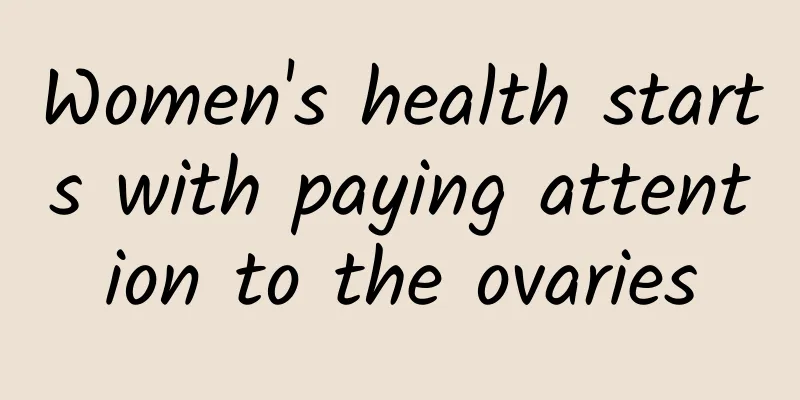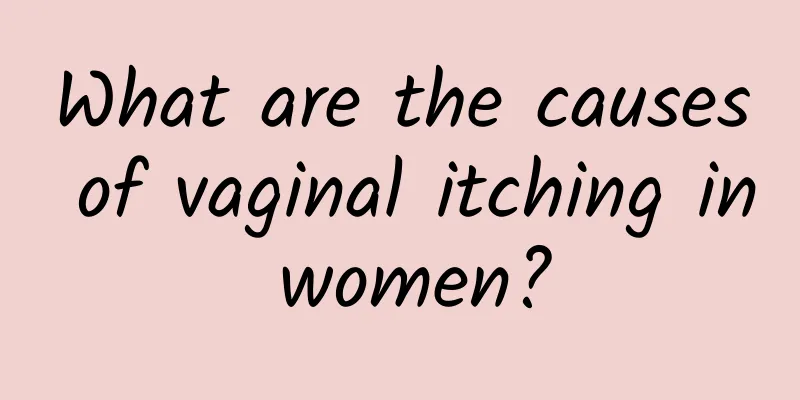Women's health starts with paying attention to the ovaries

|
The ovary is an important physiological organ of women, but it is also very fragile and vulnerable to diseases. Ovarian cysts are the most prominent disease, which can affect women's fertility and even cause cancer. So, what is the cause of ovarian cysts? Regarding the causes of ovarian cysts, gynecologists say: long-term dietary structure, bad living habits, excessive psychological pressure and other factors cause excessive acidification of the body, which leads to a decline in the overall function of the human body, causing kidney deficiency. The liver and kidney are of the same origin, so kidney deficiency also leads to liver deficiency, which in turn causes the metabolic cycle of the lower jiao to slow down, causing ovarian diseases and endocrine disorders, and a decline in immune function, which develops into abnormal proliferation of ovarian tissue, and eventually leads to ovarian cysts and even cancer. The acidification of the body causes cancer in other tissues of the body, and because of the decline in body function and the acidification of body tissue fluid, ovarian cysts are caused. The most common ovarian cysts in women of childbearing age are functional ovarian cysts, which are caused by excessive physiological reactions caused by the ovaries themselves or drug stimulation. Patients with ovarian cysts generally do not have any symptoms. A few people may have menstrual disorders, which are often discovered accidentally during medical examinations for other reasons. Symptoms of ovarian cysts include lower abdominal pain, lower abdominal discomfort, increased vaginal discharge, yellow vaginal discharge, odorous vaginal discharge, irregular menstruation, and usually a firm and painless swelling in the lower abdomen. Sometimes sexual intercourse can be painful. When the cyst affects hormone production, symptoms such as irregular vaginal bleeding or increased hair growth may occur. If the cyst is twisted, there will be severe abdominal pain, dyspnea, decreased appetite, nausea, and fever. Larger cysts can compress the area near the bladder, causing frequent urination and difficulty urinating. Especially when these symptoms are more severe, bleeding is frequent, and they occur at the same time, women are more likely to suffer from ovarian cysts, and the risk of malignant ovarian cancer is greater. Therefore, it can be said that women's health must start from the ovaries. If you have a disease such as ovarian cysts, you must find it early and treat it as soon as possible to prevent the disease from worsening and becoming cancerous. If you want to know more about ovarian cysts, please consult on this website. Special topic on ovarian cysts: http://www..com.cn/fuke/ncnn/ |
<<: Experts tell you the basic symptoms of uterine fibroids!
>>: Do you know whether uterine fibroids have symptoms and their severity?
Recommend
Several important things to know after abortion
Abortion is very common in life, and it is very h...
Cost of surgical treatment for functional uterine bleeding
Nowadays, women's living standards have impro...
Can I get pregnant if I have moderate cervical erosion?
Moderate cervical erosion usually does not direct...
Consumer Foundation: There are still deficiencies in labeling the origin of American beef with ractopamine
After more than half a year of public opinion and...
How long after an abortion can I wash my hair? How long after an abortion can I take a shower?
When can I wash my hair after an abortion? This i...
The causes of endometrial tuberculosis should be understood
Endometrial tuberculosis can cause infertility in...
Endometrial tuberculosis is not contagious
Is endometrial tuberculosis contagious? This is a...
Is it normal to have less menstrual flow after abortion?
A small amount of menstrual flow after abortion m...
How to diagnose uterine prolapse
Uterine prolapse refers to the uterus descending ...
Is cervical erosion of degree 2 serious? 4 things to pay attention to when you have cervical erosion of degree 2
When cervical erosion is still at grade 1, the pa...
Basic knowledge about viral cervicitis
Among many gynecological diseases, cervicitis is ...
Develop a physique that is easy to lose weight, start with eating the right breakfast! Nutritionist: 5 must-know breakfast concepts to lose weight easily
Breakfast is the meal that is most closely relate...
What is the vaginal mucosa and what tissues does it include?
Vaginal mucosa refers to the epithelium covering ...
Beware of the dangers of acute pelvic inflammatory disease
Pelvic inflammatory disease is a common gynecolog...
It’s so unfair! Edema looks fat female Chinese medicine practitioner teaches calf massage
Office workers sit at computers for long periods ...









